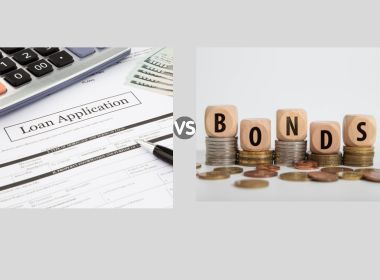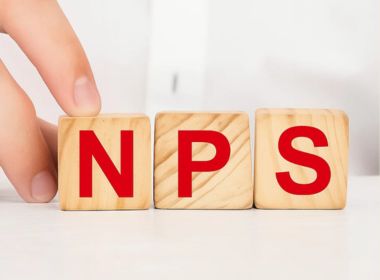Search Suggestions
- Gold Loan
- Money Transfer
- Mutual Funds

Know the Difference Between Overdraft And Cash Credit
Have you wondered why big and profitable businesses take loans? That is because they have mastered the concept of “borrow money to grow money”. Yes, that is true. If you can understand credit facilities such as bank overdrafts and Cash Credit loans, you can smartly manoeuvre the loaned funds to expand your business. Although Overdraft and cash credit are often spoken colloquially, they are quite distinct in their nature and purpose.
What are Cash Credit Loans and Overdraft Facilities?
A Cash Credit Loan is a short-term business loan that is offered to businesses to meet their working capital requirements.
An overdraft facility offered by banks allows businesses to withdraw money from their current accounts even if their account balance is low, zero, or below. Overdraft protection is an optional service, subject to the bank’s approval, that prevents the rejection of charges to a bank account in case of insufficient funds in the account. These transactions could be ATM withdrawals, debit card charges, and credit card cashback charges. Such a facility comes with an additional Overdraft Charge.
Thus, before applying for such loans, it is important to understand the similarities as well as the difference between them.
Similarities between Overdraft and Cash Credit
-
Both are short-term flexible loans.
-
Cash Credit limit and Overdraft amounts are repayable on demand.
-
The interest on both is calculated on the amount utilized and not the entire sanctioned loan amount.
-
The loan limit/amount sanctioned remains fixed in both cases and the borrower cannot apply for the additional fund under these existing loan accounts.
-
Financing for both CC and OD is done against securities.
CASH CREDITOVERDRAFT FACILITY
The purpose for maintaining the working capital of the business.For meeting short-term obligations of individuals or businesses.
Interest Lower Higher
Interest Calculation The bank charges interest on the amount actually withdrawn and not on the entire sanctioned loan. The bank charges interest on the daily overdrawn balance but the interest is debited monthly.
Bank Account A separate bank account needs to be opened. The facility can be granted on your existing bank account.
Eligibility The cash credit loan eligibility is for only non-individuals.Both Individuals and non-individuals are eligible for Overdraft Loans.
Collateral Financing is against stocks, property, and/or inventory.Overdraft amount is decided based on the customer’s relationship with the bank, his/her credit history, and investments such as FDs, insurance policies, etc.
Loan Tenure The loan duration is generally 1 year. The loan duration can vary and it can be monthly, quarterly, half-yearly, or yearly.
Points to Consider Before Applying for a Cash Credit Loan or Overdraft Facility
-
Processing Fee: The processing fee may vary from lender to lender. Compare the processing fee before proceeding with the loan.
-
Rate of Interest: The interest rates on CC and OD facilities are higher than fixed-term loans like Loan Against Property. If you do not have surplus funds to park in a CC or OD account, you should consider a fixed-term loan.
-
Minimum Utilization Charges: Some lenders levy a non-utilization charge if the CC or OD is not utilized up to a certain limit
-
On-Demand Repayment: Whether it's a cash credit loan or an overdraft facility, both of these financing arrangements are payable on demand. In an overdraft facility, the repayment must be done along with the overdraft charge.
-
Foreclosure Charges: Some lenders levy foreclosure charges when the borrower wishes to close the CC or OD account. They charge a certain percentage of the loan amount for closing the account.
Conclusion
Both cash credit and overdrafts are useful financial tools to secure funds for business working capital requirements. It is important to fully understand the features, benefits, and differences before deciding on one. And a smart business person knows how to leverage these facilities to grow their business.
CATEGORIES
OUR SERVICES
-

Credit Score
-

Gold Loan
-

Personal Loan
-

Cibil Score
-

Vehicle Loan
-

Small Business Loan
-

Money Transfer
-

Insurance
-

Mutual Funds
-

SME Loan
-

Corporate Loan
-

NCD
-

PAN Card
-

NPS
-

Custom Offers
-

Digital & Cashless
-

Milligram Rewards
-

Bank Mapping
-

Housing Finance
-

#Big Business Loan
-

#Gold Loan Mela
-

#Kholiye Khushiyon Ki Tijori
-

#Gold Loan At Home
-

#Sunherisoch
RECENT POSTS

What is a Digital Wallet: Meaning, Types, Examples & Benefits
Know More
What is Refinancing: Meaning, Types, Benefits & Examples
Know More
What Is a Debt Trap? Meaning, Causes & How to Avoid It
Know More
Gold Price Forecast 2026: Will Gold Prices Rise or Fall?
Know More
What Is Capital Gains Tax in India? Meaning, Types & Tax Rates
Know More
Best Index Funds to Invest in India in 2026
Know More
Understanding Gold Bees: How it Works, Net Asset Value, Returns and More
Know More
Multi Cap and Flexi Cap Mutual Funds: How Are They Different?
Know More
Online Personal Loan vs. Offline Personal Loan - Which Is Better for You?
Know More
10 Tips to Improve Chances of Personal Loan Approval
Know MoreFIN SHORTS

What Is a Gold Loan and Who Should Consider It?
Know More
How Does a Gold Loan Work? A Simple Step-by-Step Guide
Know More
How to Link Your Mobile Number with PAN Card Step-by-Step Guide
Know More
Is a PAN Card Mandatory for a Gold Loan? Rules Explained
Know More
Can You Have Multiple Personal Loans at the Same Time?
Know More
Why Is Gold Sustaining Near ₹1.5 Lakh? Key Reasons Explained
Know More
The Best 7 SIF Funds of 2026: A Better Way to Invest
Know More
Gold Price Hits ₹1,40,000: How It Impacts Gold Loan Amounts
Know More
How to Check Loan Number: Step-by-Step Process
Know More
How to Open an SIP Account: Online and Offline Process
Know More
How Do I Apply for MSME Certification Online in India?
Know More
7 Important Reasons to Choose Hallmark Gold When Buying Jewellery
Know More- South +91 99469 01212
- North 1800 313 1212





